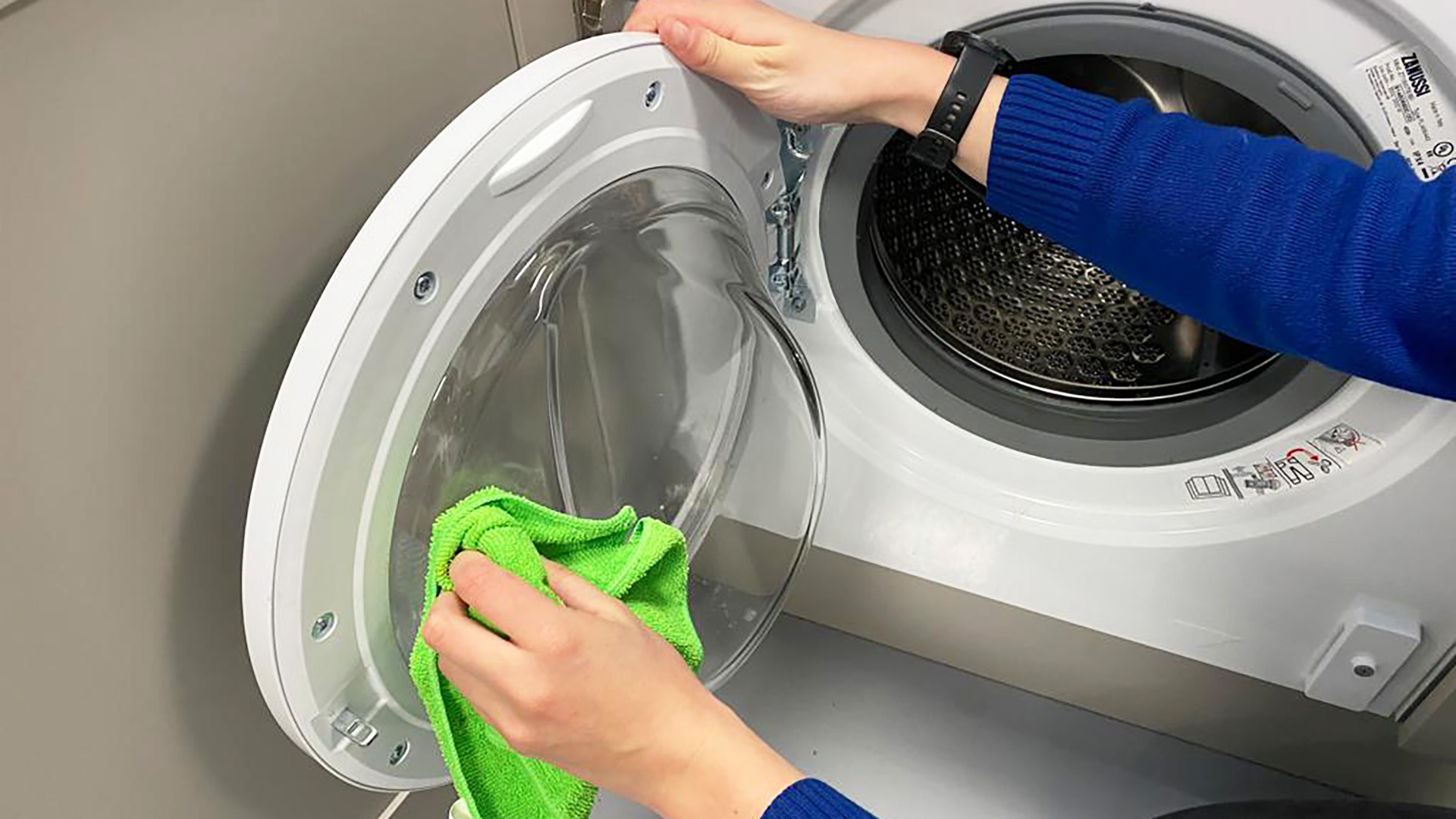Knowing how to sanitize your washing machine is essential to ensure that your laundry stays fresh and free from bacteria. Complete sanitization of your washing machine is also necessary if your clothes have come into contact with chemicals such as bleach, pesticides, or any other potentially harmful substances.
We rely on the best front load washers and best top load washers to keep our clothes clean and fresh throughout the year. Making sure that you know how to clean your washing machine effectively helps to keep your washer free from germs and residue so that it always works efficiently, without any foul odors, and that it effectively cleans your clothing, leaving it spotless, fresh, and hygienically clean.
Perhaps your washing machine has been neglected for months and is in need of some urgent care, or maybe it only needs some light sanitizing. Either way, you're in the right place, as we will show you how to sanitize your washing machine affordably and effectively.
For more, check out our guide to the best washing machines.

Luke Gammons is a third-generation owner of Wades Group Ltd, a home appliance store established in 1918. Luke has been installing and maintaining washing machines for over 20 years and has an extensive online presence in this field, giving advice on TikTok to over 28,000 followers.

Ian Palmer-Smith is a Supplier and Heating Service Director at Domestic & General and a domestic appliance service and repair expert with over 35 years of professional experience.

Business owner and an expert in the industry for nearly 14 years, Alice has serviced thousands of rental properties all over London, with her own property services business in London, Lynch Property Services.Alice specializes in cleaning, inventories, gas, and electric.

Judi Kutner is a licensed realtor as well as a senior contributor at Virtual Staging, the premier solution for transforming vacant property listings into captivating dream homes. She currently holds a Florida real estate license and has held a NY Mortgage Broker's license, a Florida Community Association Manager license, plus several SEC licenses during her career.
What you will need to sanitize a washing machine
To sanitize a washing machine, you will need some basic cleaning equipment and products. For a washing machine that needs more extensive work, we would recommend using strong chlorine-based bleach, as it will kill most of the bacteria and will also help to remove any residue build-up. Make sure to wear rubber gloves if you choose to use bleach or other chemical solutions to disinfect your washing machine's drum.
If the washing machine is just in need of light cleaning, then we would recommend using white vinegar as it can help neutralize odors and remove build-up, but it is much gentler and can be used more frequently than bleach.
Do not use any colored or rich vinegar, as they can cause further residue buildup in the washing machine which could potentially damage your machine or stain your clothes.
Appliance repair expert at Domestic & General, Ian Palmer-Smith advises cleaning out the interior your washing machine at least once a month for the best performance. As good practice, he also advises:
"It is good to leave the door open after use to let air circulate and prevent moisture or mildew growth inside. No matter what type you have, regular maintenance is needed to prevent odors, build-up, or a costly washing machine repair."
• Rubber gloves
• A scrubber or an old toothbrush
• Some microfiber towels or disposable paper towels
• A bucket
• Chlorine-based bleach if the washing machine needs heavy sanitization
• White vinegar if the washing machine needs light cleaning and odor removal
• Lemon juice or pine oil to make the machine smell fresh after sanitizing
• Water
Once you've got all of your equipment and cleaning supplies prepared, you're ready to take on the task of sanitizing your washing machine.
Washing Machine Expert, Luke Gammons says: "For an even more intense clean, I like to pour some bicarbonate of soda and white vinegar inside the drawer. This means that while the washing machine is on, everything will receive a thorough cleaning as the product works around the components."
How to sanitize a washing machine: Quick steps
- Set the washing machine temperature
- Add your desired cleaning solution
- Run a cycle
- Scrub the inside of the washing machine
- Run one more hot cycle
- Dry the drum thoroughly
- Make the machine smell fresh
- Give the outside a wipe
- Leave the door open
Step by step: how to sanitize a washing machine
1. Set the washing machine temperature
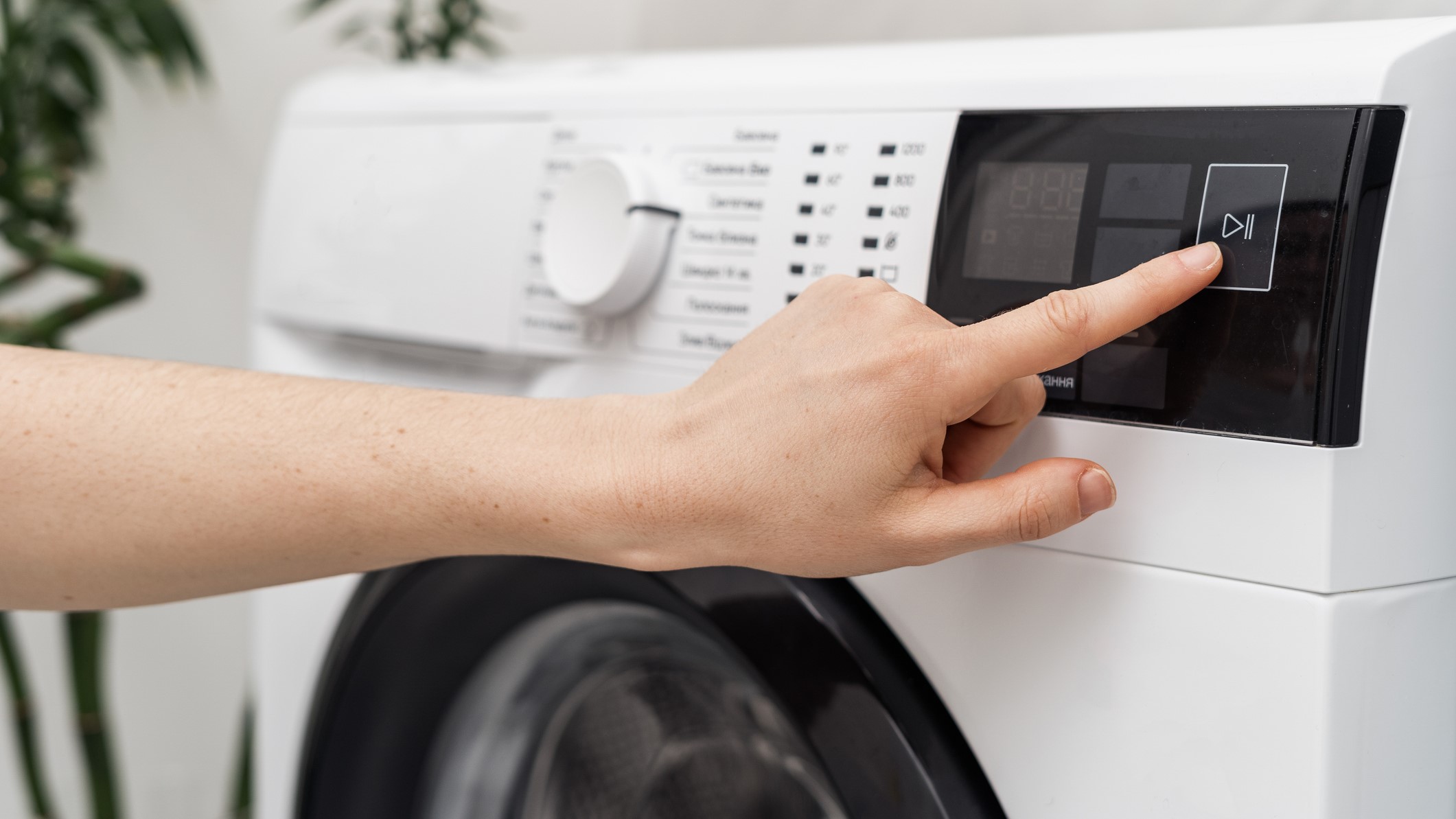
Set your washing machine to the highest possible temperature. Make sure there are no clothes inside!
2. Add your desired cleaning solution
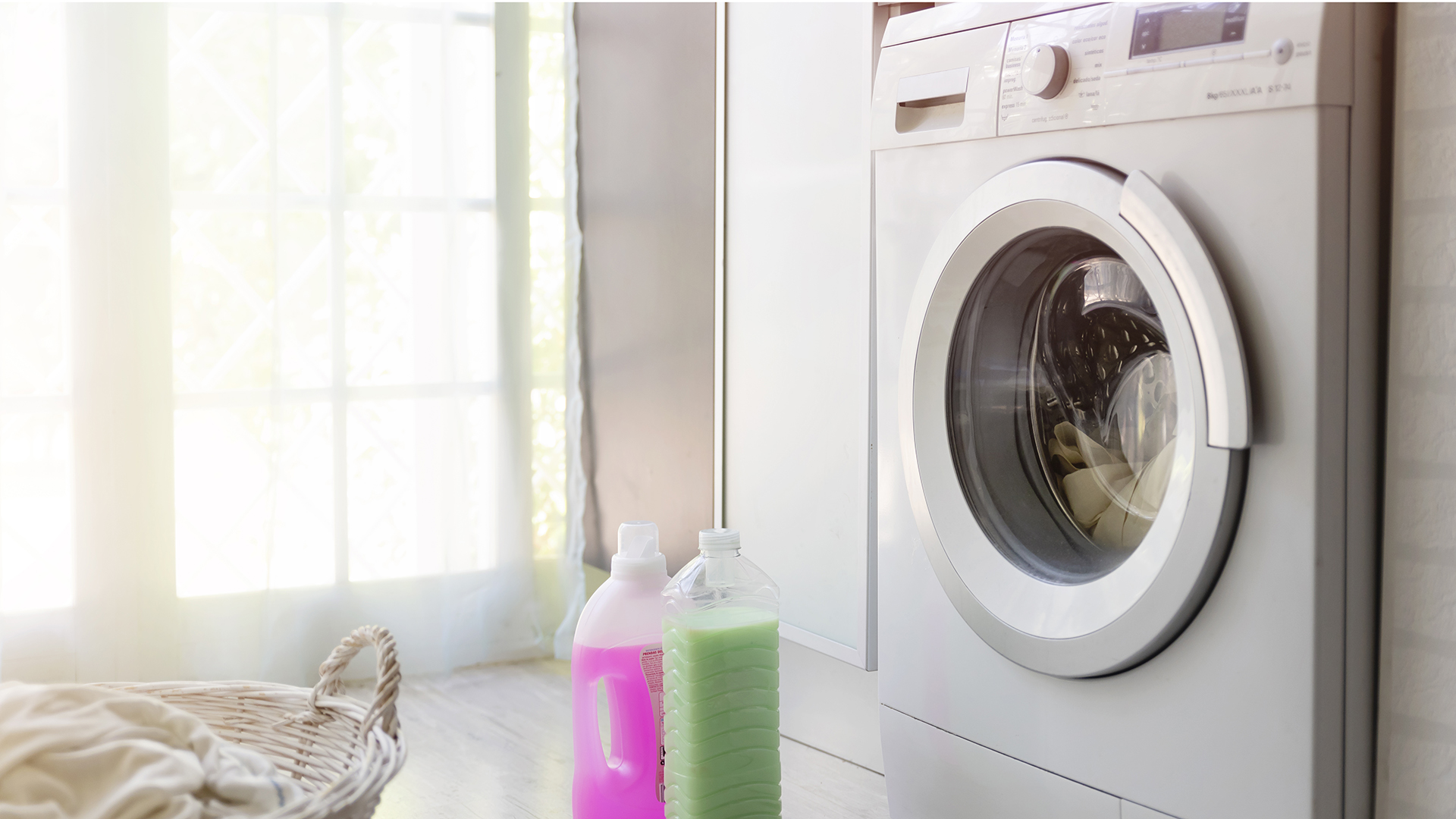
Add 1 cup of your chosen cleaning solution (bleach or vinegar) to the drum of the machine. Do not add any clothes or detergent.
Alice Lynch advises: "Set the machine to a hot cycle and add a few cups of white vinegar or a specialized washing machine cleaner to the drum."
3. Run a cycle
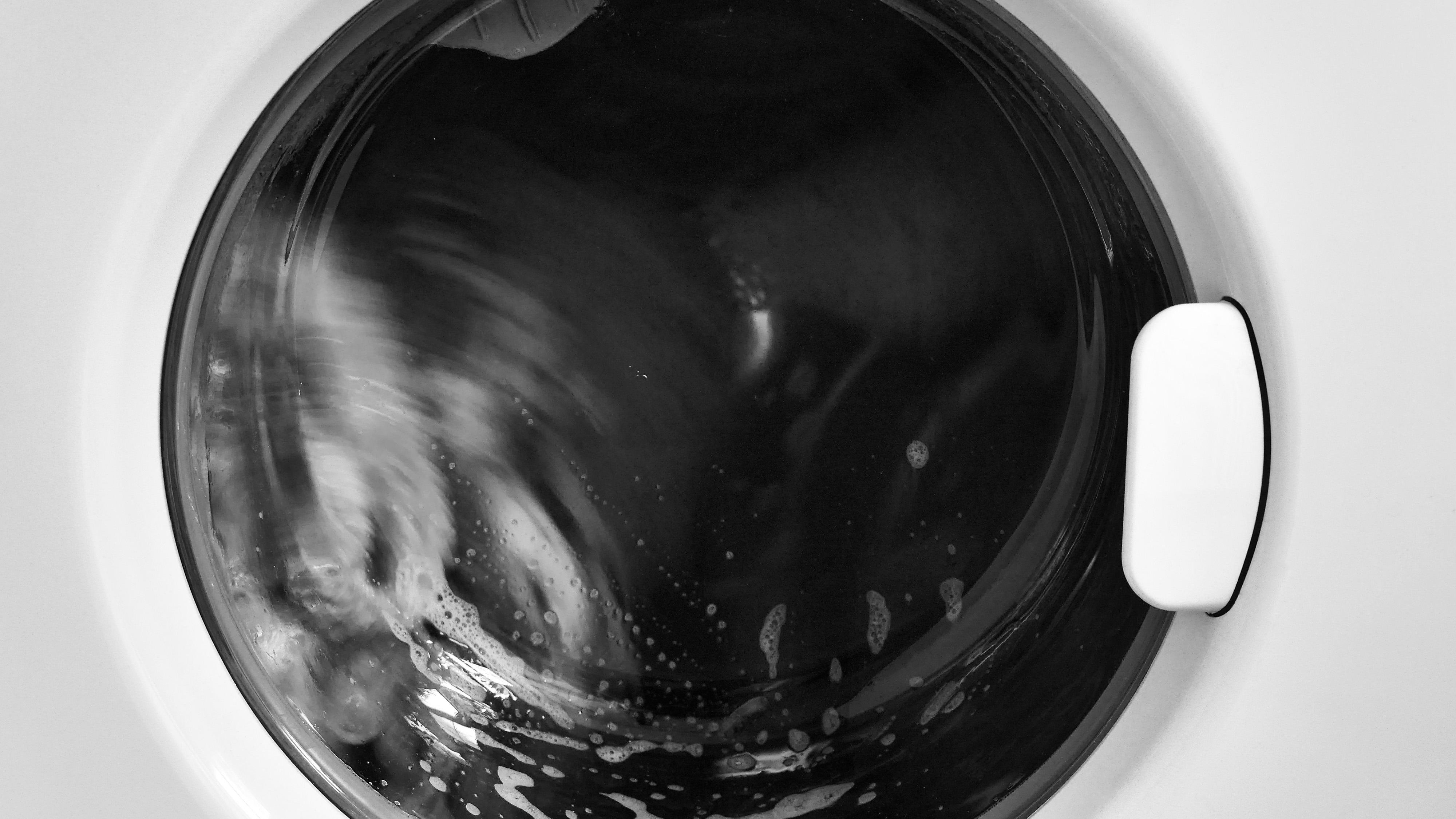
Run a full-length cycle of your washing machine. Let the machine spin and drain completely before opening.
Ian Palmer-Smith explains: "The easiest way to clean out the drum of your washing machine is to run a maintenance wash cycle. A maintenance wash is essentially a deep-clean cycle that helps to kill off any bacteria, mold, and any stains or sludge that has built up. This is carried out by performing a very hot ‘cotton’ wash coupled with some washing machine cleaning solution."
"It is best to do this at least once a month to keep the washing machine nice and clean which in turn will keep your laundry clean and fresh too!"
4. Scrub the inside of the washing machine
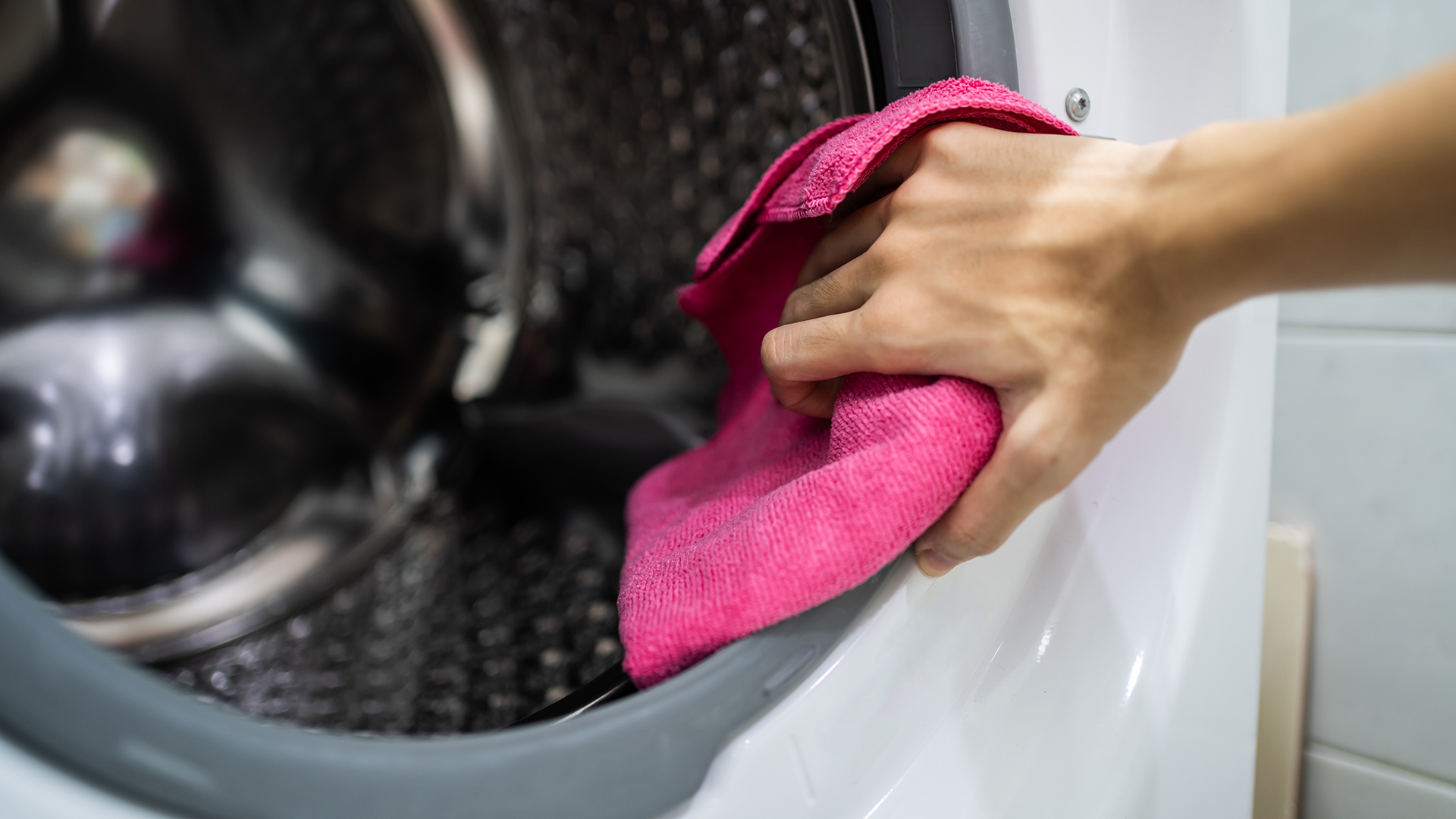
When the wash cycle is completed, check around the inside of your drum for any mold or residue. Mold often grows around the rubber seals and the edge of the door. Mix 1/4 cup of bleach or vinegar with a quart of water, and use an old toothbrush or a stiff-bristled scrubber to scrub around the inside of the drum and the rubber seal.
Alice Lynch also advises on treating limescale and mold:
"For limescale on the glass or drum, spray limescale remover, allowing it to sit for the recommended time before scrubbing and wiping off. Repeat if necessary."
"If the seal has mold, dilute one cup of bleach in four cups of water and carefully apply it to the affected areas. For severe cases, you may cautiously use undiluted bleach, though we advise against this as it could damage the rubber."
5. Run one more hot cycle
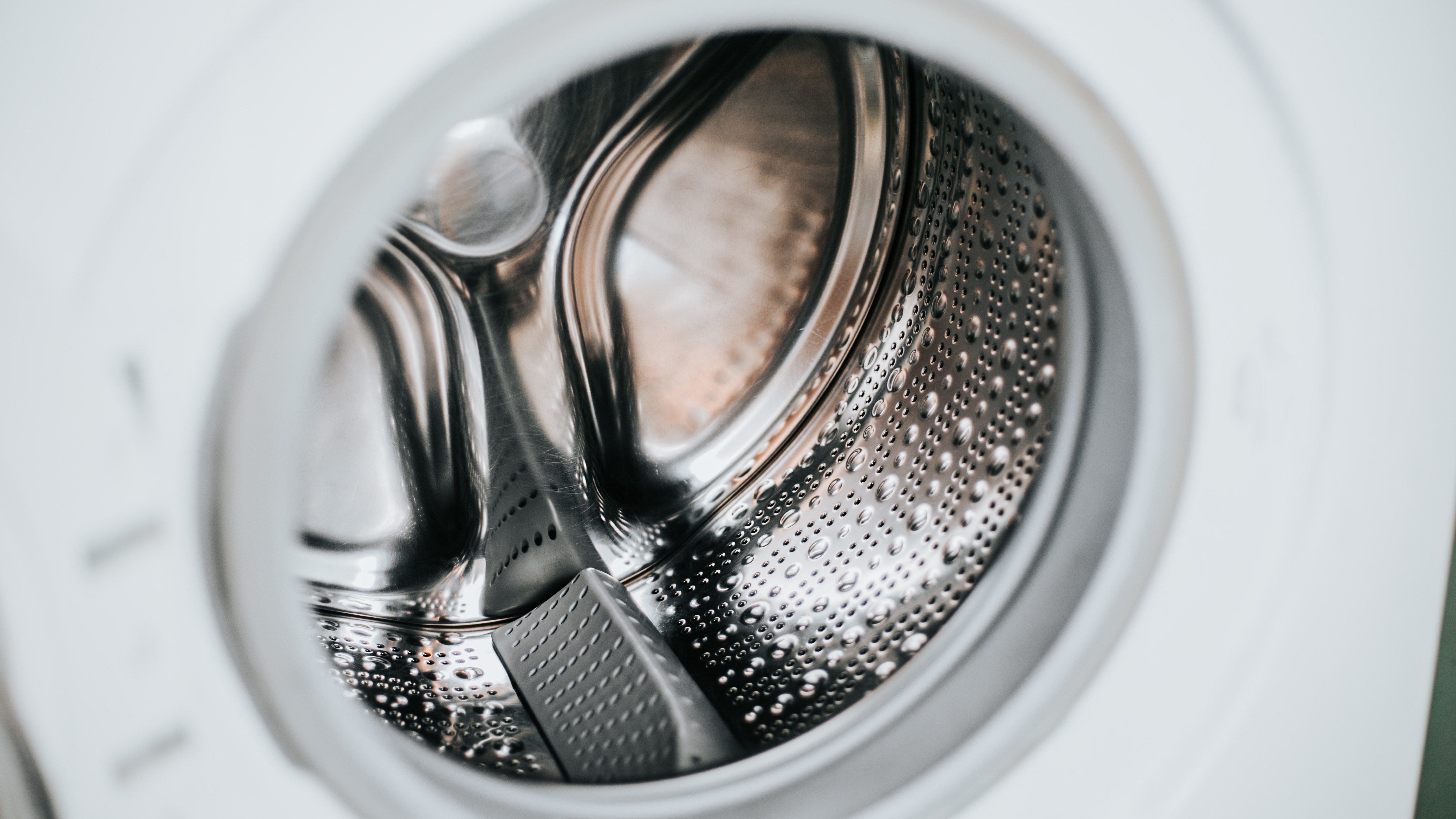
Make sure your washing machine is still in the highest temperature setting and run another hot cycle. Do not put any bleach or vinegar this time.
Judi Kutner advises:
"To clean any washing machine, you need an empty drum to start. Use something simple like white vinegar, baking soda, or a store-bought cleaner."
"Run the hottest cycle your machine has to let the cleaning solution do the heavy lifting. While that’s going, take a moment to wipe down any detergent dispensers, especially if they’re removable."
"They tend to get sticky over time. Pay attention to rubber seals or gaskets, too—those areas trap moisture and can lead to odors. After the cycle, dry everything out and keep the door or lid open for airflow."
6. Dry the drum thoroughly
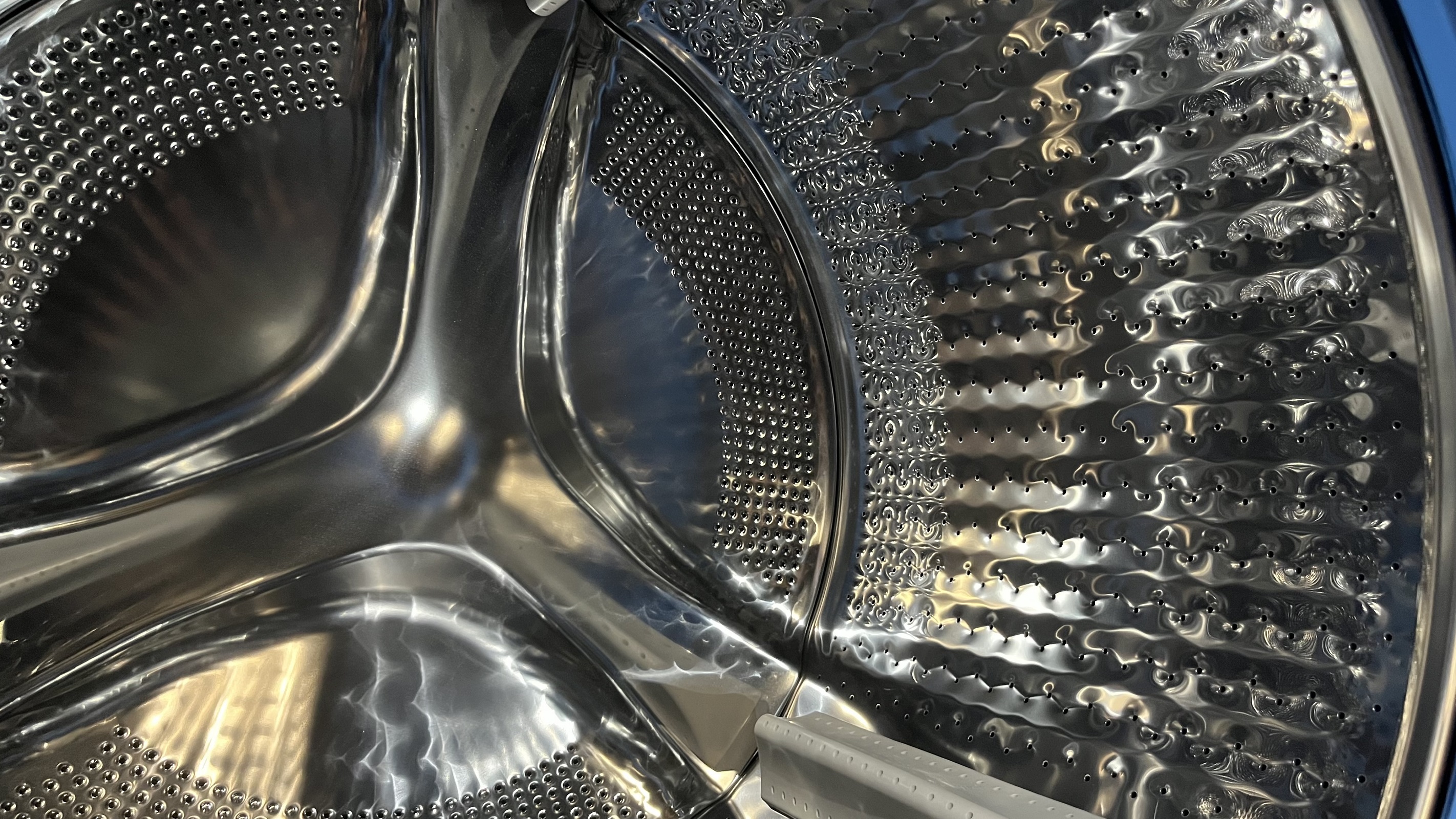
Use a towel to dry the inside of your washing machine drum thoroughly. Make sure you get in between the rubber seal and the door.
All our experts advise thoroughly drying any residual moisture and then leaving the door ajar to allow the machine to air out.
Alice Lynch explains: "Wipe the inside of the drum, rubber seal (especially the inner flap), and door. Dry the rubber seal thoroughly to prevent mold growth. Leave the door slightly ajar for a few hours to allow proper airing."
7. Make the machine smell fresh
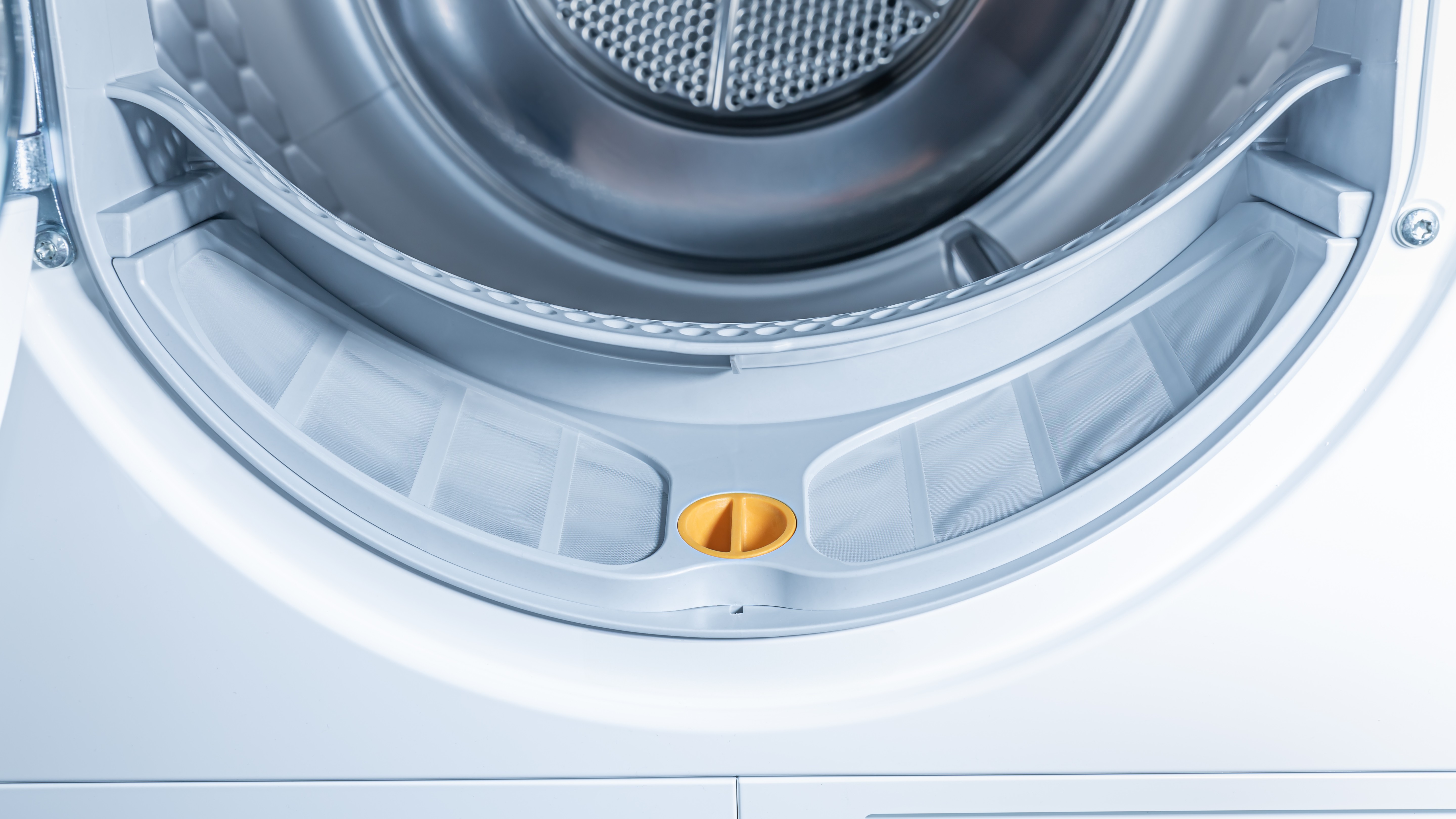
Put a small amount of pine oil or lemon juice on a microfiber cloth or a disposable paper towel and rub it on the inside of the drum. Doing this will make your washing machine smell fresh and clean.
Alice Lynch adds: "For a fresh smell, you can add a few drops of lemon juice or a squeeze of half a lemon. This removes limescale, detergent residue, and odors."
8. Give the outside a wipe
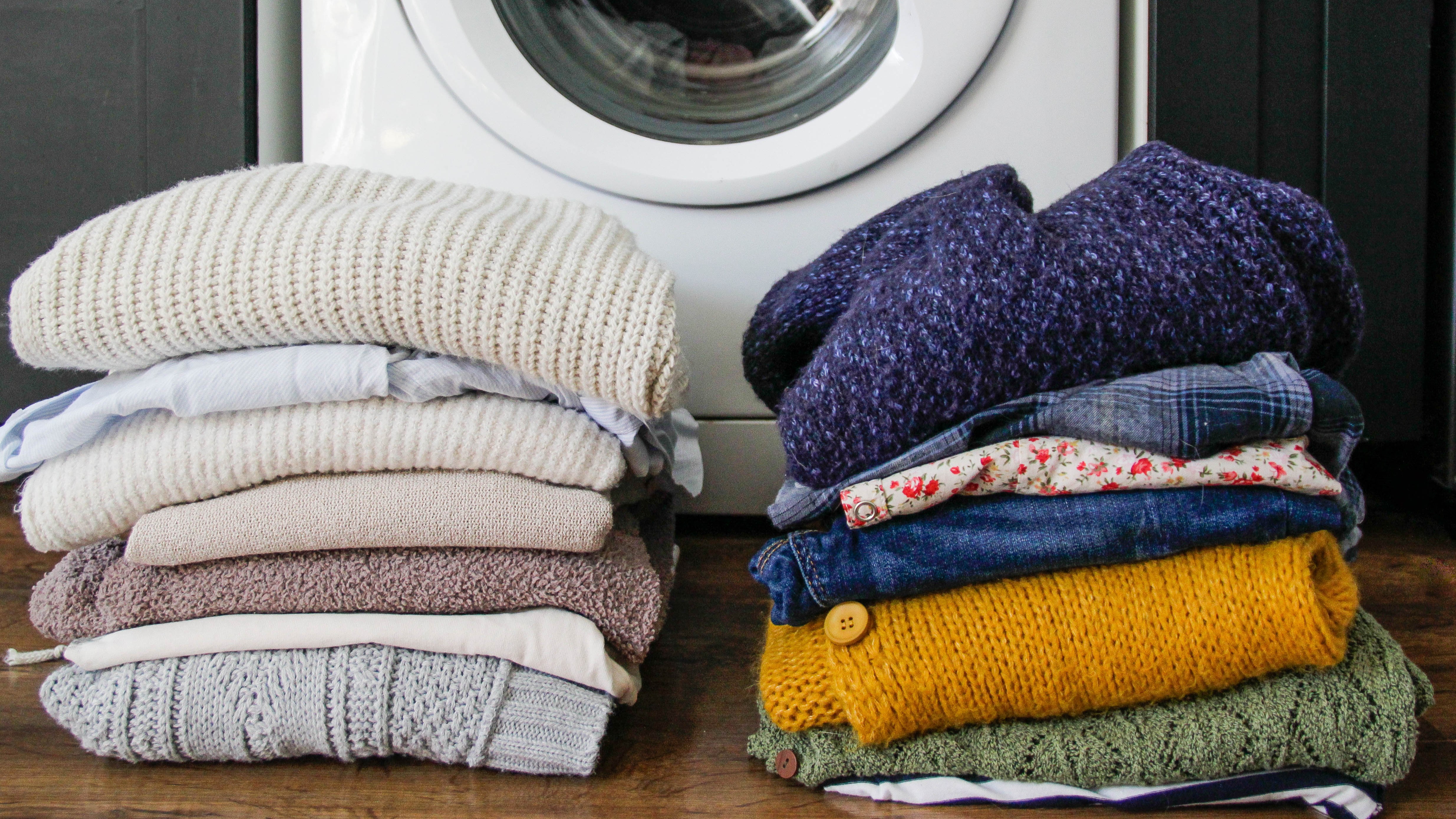
Use a cloth or paper towel to give the outside of your washing machine a wipe. Use water or a disinfectant spray if necessary.
Alice Lynch asserts: "Dry the drum, seal, and door completely after cleaning to prevent moisture build-up, which can lead to mould and bacteria."
9. Leave the door open

Leave your washing machine door open to allow any residual moisture to dry completely.
Ian Palmer-Smith advises: "It's good to leave the door open after use to let air circulate and prevent moisture and mildew growth inside. No matter what type you have, regular maintenance is needed to prevent odors, buildup, or a costly washing machine repair.”
Why sanitizing your washing machine is important
The detergents and soap that you use in your washing machine can often result in a gunky layer around the washer, which can cause the machine to run less efficiently, resulting in cooler water and a slower spin speed. The layer of gunk also promotes bacteria growth, which can be harmful to the body if it gets on your clothes.
By sanitizing your machine, you will remove the gunky layer that can harbor foul smells and harmful bacteria, resulting in cleaner, fresher laundry.
Q&A: How to sanitize a washing machine
How often should you sanitize your washing machine?
You should generally aim to clean and sanitize your washing machine lightly once per month or deep clean it once every three months.
Scrubbing frequently with white vinegar is the most effective way to keep your washing machine sanitized and efficient without spending too much money on cleaning products.
Our experts advise regular cleaning and maintenance of your machine, from always leaving the door ajar to air after every wash, checking the filters in-between every few washes and cleaning the interior once a month.
Judi Kutner advises: "Keeping your machine clean doesn’t have to be a big production. Monthly maintenance—cleaning cycles, wiping damp spots, and leaving the door open—keeps buildup under control. Simple habits like these help the machine last longer and keep your clothes smelling fresh."
